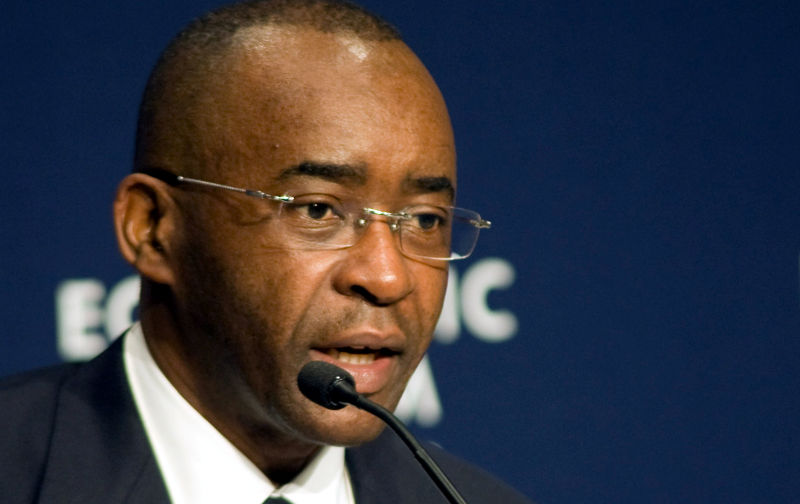The Founder and Executive Chairman of the Econet Group, Strive Masiyiwa, has bought back Mascom Botswana from MTN for US$300 million, 14 years after losing control of the telecoms giant.
Mascom was Strive Masiyiwa’s first mobile company before he obtained a licence to launch Econet Wireless after a protracted court battle with government authorities.
The name Mascom was derived from Masiyiwa Communications, a name that was reportedly suggested by a business partner.
MTN Group Ltd. announced the disposal of its share in a Botswana joint venture as Africa’s biggest wireless carrier by revenue kicks off a drive to raise at least 15 billion rand ($1.1 billion) from asset sales and strengthen the balance sheet.
According to some reports the company agreed to sell its 53 percent stake in Botswana’s Mascom to Econet Wireless Zimbabwe Ltd. for $300 million, the Johannesburg-based company said in a statement on Thursday. Other businesses now on the market include e-commerce services, which includes Nigerian online retailer Jumia Technologies AG. and Travelstart.co.za. MTN is also looking to sell its interest in IHS Towers Ltd., the company said.
The news comes a year after Chief Executive Officer Rob Shuter announced a review of MTN’s then-22 markets across the Middle East and Africa to evaluate ways of simplifying the business. The sale of MTN’s Botswana interest follows a disposal of its Cyprus unit for 260 million euros ($294 million).
“We are simplifying the group, we are reducing risk, and improving returns,” Shuter said in a phone interview. “That will generate some returns that will be helpful for our gearing and other priorities.”
The shares gained as much as 7.5 percent, the most since Dec. 27, and traded 7 percent higher at 81.41 rand as of 9:21 a.m. in Johannesburg. The stock has slumped by a third in the last 12 months, valuing the carrier at 153 billion rand.
MTN reported the strategy alongside 2018 adjusted earnings per share, excluding some items, of 3.37 rand. That compared with a company guidance of 3.28 rand to 3.46 rand. The firm also raised its medium-term service-revenue guidance to double-digit percentage figures from upper-single-digits. Dividend growth will be in the 10 percent to 20 percent range, though for 2019 the payout will probably be at the lower end.
The mobile-phone company is still facing a number of challenges across its territories, with a Nigeria court hearing into an alleged unpaid tax bill of about $2 billion due later this month. That’s just the latest in a series of controversies in MTN’s biggest market. Late last year, the carrier agreed to pay $53 million to settle a separate allegation about the illegal repatriation of funds, while a $1 billion fine in 2016 led to a full-year loss. MTN still plans to list its Nigeria unit in Lagos over the first half of the year.
The $53 million outlay was among one-time costs outlined by MTN in a recent trading statement as hurting 2018 earnings. Those also include the effect of a stronger rand when compared to the various other currencies it uses in different markets.
The carrier said little about recent challenges in Uganda, where its local CEO was deported last month. MTN has been granted an extension of its operating licence to allow for negotiations about a renewal, the company said. Net debt rose to 63.5 billion rand from 57 billion rand, and proceeds from the asset sales will be used to pay that down.
MTN also reiterated that it sees “no legal merit” in a long-running $4.2 billion lawsuit by Turkcell Iletisim Hizmetleri AS over the award of its Iran license. The case returned to the spotlight in February after South Africa’s former ambassador to Iran was arrested on corruption charges.
The full-year year dividend was 5 rand a share, while subscriber numbers increased to 233 million across 21 countries.
